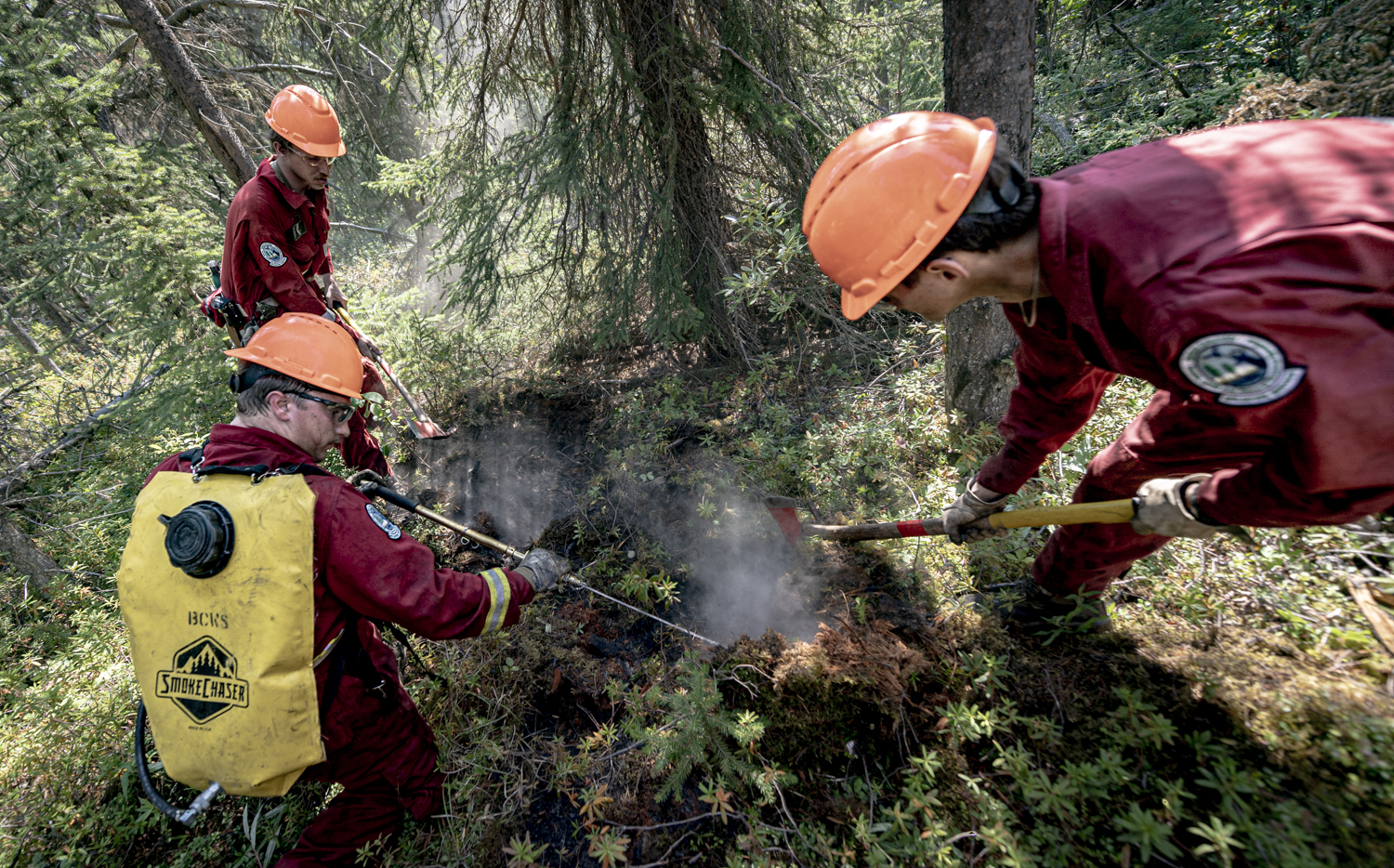
Ombudsman says military underestimating mental health risks of domestic deployments
September 6, 2023
By
The Canadian Press

Members of 1st Battalion, Princess Patricia’s Canadian Light Infantry, spray water on burning tree roots at a recent burn area to help BC Wildfire Service (BCWS) contain this season’s wildfires near Vanderhoof, British Columbia, on July 28, 2023. Photo Credit: Master Sailor Dan Bard, Directorate of Army Public Affairs (DAPA), Canadian Armed Forces Photo
By Sarah Ritchie
Canada is underestimating the mental health impact domestic emergencies like wildfires and COVID-19 have had on the military reservists who respond to them, a new report says.
Gregory Lick, the Canadian Armed Forces ombudsman, said there are also gaps in health-care policies and a shortage of health professionals which put the military’s 28,500 reservists at a disadvantage compared to regular force members.
Lick’s report published Wednesday said that some reservists who tried to get mental health care through the military’s health services were turned away because administrative staff were under the mistaken impression that reserve members did not have coverage.
“I have accessed military health services in my past and I would never have expected that,” said Lick. “That really is a training or understanding issue that can be quickly addressed.”
Not everything identified in the report is so easily fixed, he said.
“In military health services, the same as it is in Canadian society, one of the largest deficits in the resources available for mental health is that lack of people,” he said.
That means wait times are long for military health services. The report said there is a biased belief that domestic operations have a lesser impact on mental health, and in some cases that has meant the Armed Forces is skipping pre-deployment screenings for reservists.
“I was a little bit surprised in terms of the amount of times that risk assessments were not done, the amount of waivers that people were given to deploy quickly,” he said, though he conceded that “sometimes that has to occur when there’s an emergency.”
Lack of medical screening for domestic operations
The military is being asked to respond to domestic emergencies more often, and the investigation found that about 65 per cent of military members did not get a medical screening for their most recent domestic operation.
Just 38 per cent of the people who said they had a medical screening within the last year were reserve members, and there’s no system in place to flag when a health assessment is due.
That includes extremely difficult operations during COVID-19, when the military was called in to help in long-term care homes that were overwhelmed by the virus.
“They saw something really tragic in those homes. And that was one of the instigators, certainly, in why we looked at this particular issue,” Lick said.
But being deployed to fight raging forest fires, to evacuate people from danger zones as flames move in, or to rescue people from rising floodwaters also takes a toll.
The Canadian Joint Operations Command and Canadian Forces Health System does not track reserve members after they’re deployed, and it’s less likely that one of their commanding officers will notice if their mental health is suffering.
“After a domestic deployments, many primary reserve members are on a part-time schedule and do not interact with their chain of command and peers daily,” the report said.
Slate of changes recommended
The report calls for a slate of changes to be made by the fall of 2025 including formalizing post-deployment check-ins and strengthening the oversight of mental health screenings.
It was virtual care services expanded to provide better coverage for reservists who do not live near a base or wing and for more clear information be made available on what support reservists can access. For reservists who may only have access to the Armed Forces intranet system once or twice a week, Lick said it’s particularly important to have benefits information available online.
The ombudsman’s office began investigating the health and wellness of reserve force members in 2015 and says most of its previous recommendations have not been fully implemented.
As a result, there are inconsistent and unclear policies about accessing mental health supports.
Reservists’ eligibility can vary depending on their class of employment, and the report found it’s not always clear to them or their leadership what they are eligible to receive. Reservists are also only eligible for the Canadian Forces Members Assistance Program if they can “explain how the performance of their military duty relates to their condition,” the report said.
Any member is able to get an assessment and referral from the program, but some care providers and reservists were unaware of that.
Presumptive entitlement
Lick said it’s vitally important for the military to adopt a presumptive entitlement approach for its members, similar to what some provinces have done for first responders.
“Whether it’s a police officer, (a firefighter) or perhaps involved in search and rescue, if you have a mental-health issue, you are presumed to have gotten it from that,” he said.
Between April 2017 and March 2022, 6,124 reservists were deployed in Canada on nine operations. Since then, the military has had to quickly respond to floods, a major hurricane and record-breaking forest fires.
“We started this (investigation) before a lot of these forest fires that have really created a huge tragedy across the country,” Lick said. “We never foresaw that.”
“This report has come at a particularly important time.”